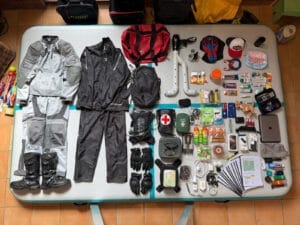Ride through the rough, rise through the ride | Vietnam dirtbike tours 2026 Life gets bumpy — that’s
How should riders do if they cause accidents to other local people in Vietnam?
- Seek Medical Attention: The first and most important thing to do after an accident is to make sure that everyone involved is safe and receive medical attention if needed. Call an ambulance or go to the nearest hospital as soon as possible.
- Exchange Information: If possible, exchange contact and insurance information with the other party involved in the accident. It’s important to have their name, phone number, and address.
- Contact Your Embassy: If you’re a foreigner involved in an accident, it’s important to contact your embassy for assistance. They can help you with legal matters and communicate with the local authorities on your behalf.
- File a Police Report: In Vietnam, it’s required by law to file a police report in case of an accident. Make sure to report the accident to the local authorities and obtain a copy of the report for your records.
- Contact Your Insurance Company: If you have insurance, contact your provider and inform them about the accident. They can assist you with filing a claim and provide guidance on how to proceed.
- Consult a Lawyer: If you’re facing legal issues related to the accident, it’s important to consult a lawyer. They can advise you on your rights and help you navigate the legal system in Vietnam.
In summary, if you get into an accident while riding a motorcycle in Vietnam, it’s important to prioritize safety and seek medical attention, exchange information with the other party, contact your embassy and insurance provider, file a police report, and consult a lawyer if necessary.
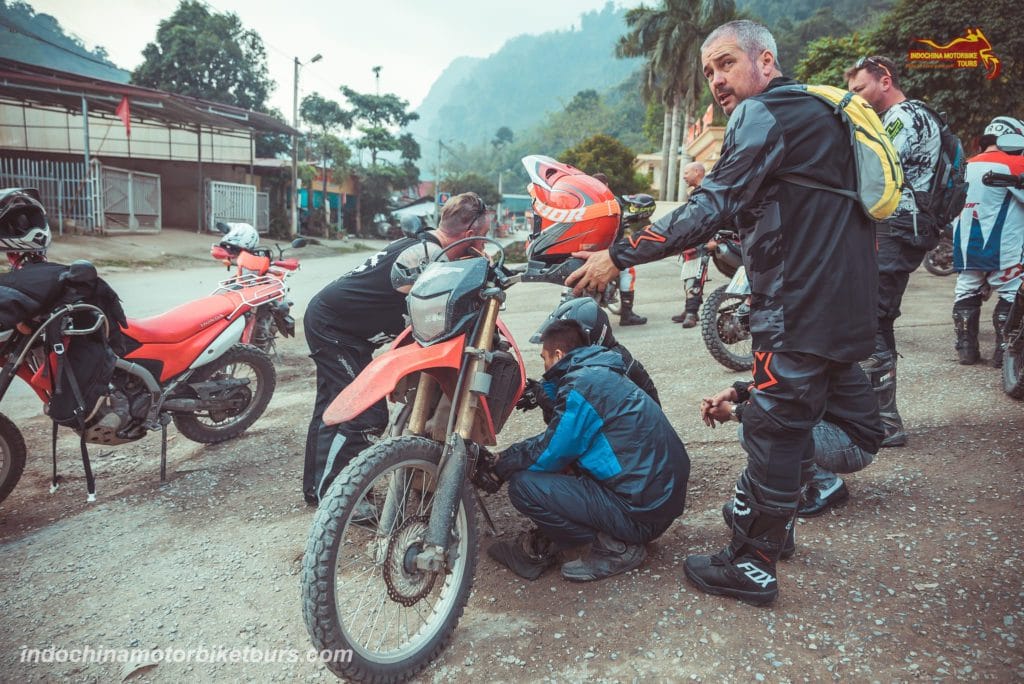
What riding gears should you advise riders to bring along before traveling to Vietnam?
As a general rule, riders should always prioritize their safety by wearing proper riding gear while traveling in Vietnam. Here are some essential riding gears that riders should consider bringing along:
- Helmet: A high-quality helmet is a must-have for any rider in Vietnam. It’s not only required by law but also essential for protecting your head in case of an accident.
- Riding Jacket: A durable and breathable riding jacket can protect you from the sun, wind, rain, and other elements. Look for a jacket that is made of high-quality materials and has proper ventilation and armor for added protection.
- Riding Pants: Riding pants are designed to provide comfort and protection while riding. Look for pants that are made of durable and abrasion-resistant materials, with padding and armor in the knee and hip areas.
- Riding Boots: A pair of sturdy and comfortable riding boots can protect your feet and ankles from injuries. Look for boots that have a thick and slip-resistant sole, ankle and shin protection, and are made of durable materials.
- Gloves: Riding gloves are essential for protecting your hands from the wind, sun, and debris. Look for gloves that are comfortable, breathable, and provide good grip and protection.
- Eye Protection: Wearing sunglasses or goggles can protect your eyes from the sun, dust, and debris. Look for eyewear that provides UV protection and has anti-fog and scratch-resistant properties.
- Rain Gear: Vietnam’s weather can be unpredictable, so it’s important to bring along a waterproof rain jacket and pants to keep you dry in case of rain.
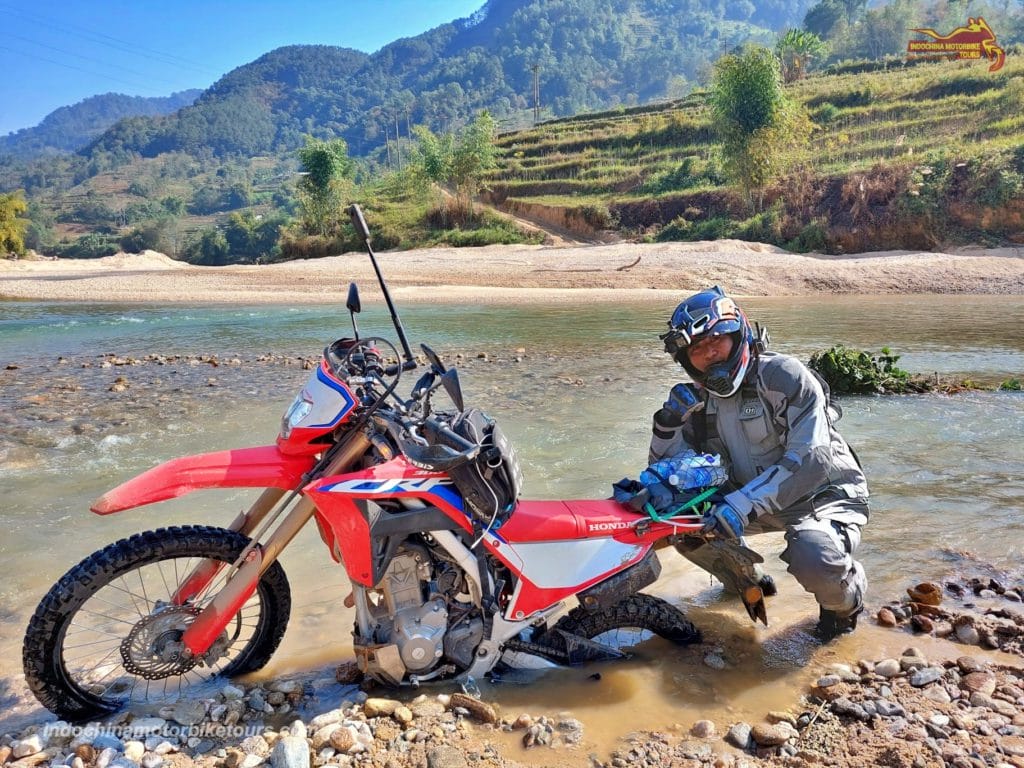
In summary, riders traveling to Vietnam should bring along a helmet, riding jacket, riding pants, riding boots, gloves, eye protection, and rain gear to ensure their safety and comfort while riding.
Besides those basic riding gears, what other personal belongings or accessories should riders bring along?
Besides the essential riding gear, riders traveling to Vietnam should also consider bringing along some personal belongings and accessories to make their trip more comfortable and enjoyable. Here are some recommendations:
- Backpack: A backpack is a convenient way to carry your personal belongings, such as a camera, water bottle, snacks, and other essentials.
- Travel Documents: Make sure to bring along your passport, visa, driver’s license, and other important travel documents.
- Cash and Credit Cards: Vietnam is a cash-based society, so it’s important to carry enough cash with you. Credit cards are accepted in some hotels, restaurants, and shops, but it’s always a good idea to have cash as a backup.
- Phone and Charger: Bring along your mobile phone and charger to stay connected and take photos or videos during your trip.
- Power Bank: A power bank can come in handy if you’re going to be using your phone or other devices extensively during the day and need to recharge them.
- Sunscreen and Insect Repellent: Vietnam is a tropical country, so it’s important to protect your skin from the sun and insects. Bring along sunscreen with a high SPF and insect repellent to avoid mosquito bites.
- First Aid Kit: A small first aid kit can be useful for minor injuries or illnesses while traveling. Include items such as bandages, antiseptic cream, pain relievers, and any prescription medications.
- Travel Guidebook: A travel guidebook can help you plan your itinerary, learn about local customs and culture, and discover hidden gems in Vietnam.
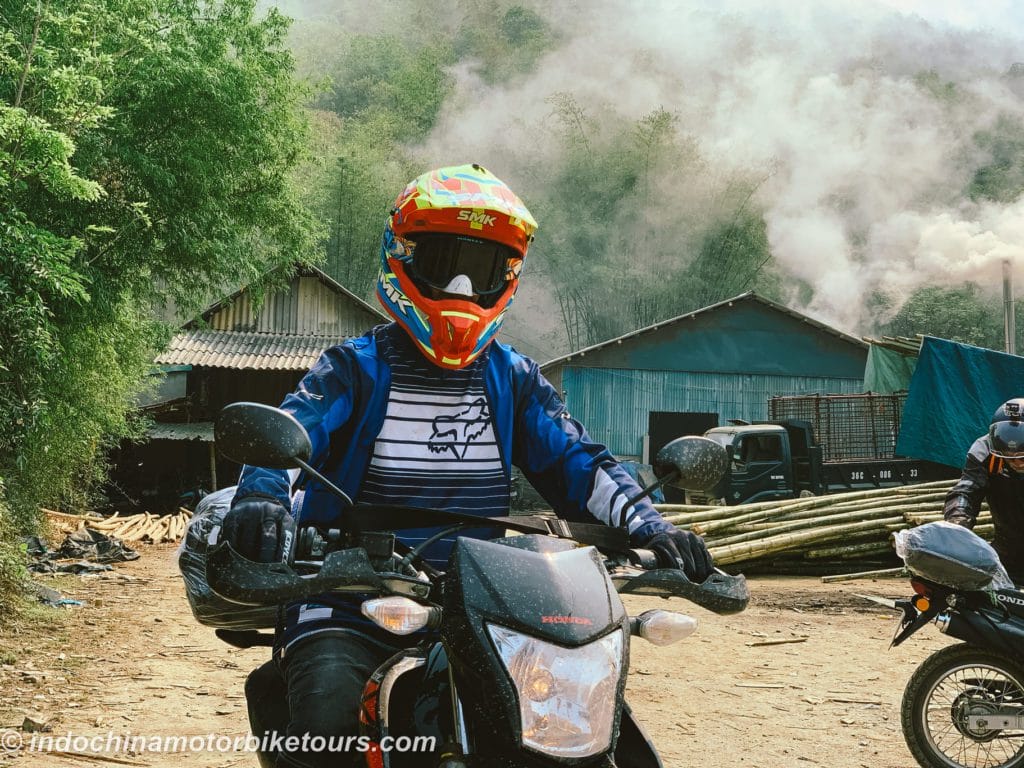
In summary, besides the essential riding gear, riders traveling to Vietnam should consider bringing along a backpack, travel documents, cash and credit cards, phone and charger, power bank, sunscreen and insect repellent, first aid kit, and travel guidebook to make their trip more comfortable and enjoyable.
And what should you do if you make accidents to yourself while riding in Vietnam?
If you get into an accident while riding a motorcycle in Vietnam, it’s important to follow these steps:
- Check for injuries: The first priority is to assess your own injuries and those of any passengers. If anyone is injured, call for emergency medical assistance immediately.
- Move to a safe area: If possible, move yourself and the motorcycle to the side of the road or a safe area away from traffic to avoid further accidents.
- Exchange information: Exchange information with the other party involved in the accident, such as their name, phone number, and insurance information. Take photos of the damage to both vehicles and the accident scene.
- File a police report: It’s important to file a police report, especially if the accident involved injuries or significant damage to the vehicles. The police report can be used as evidence when filing a claim with your insurance company.
- Contact your insurance company: Notify your insurance company of the accident as soon as possible, and provide them with all the necessary information and documentation.
- Seek legal advice: If you’re involved in a serious accident or if there are disputes about fault or compensation, it’s advisable to seek legal advice from a lawyer who specializes in traffic accidents.
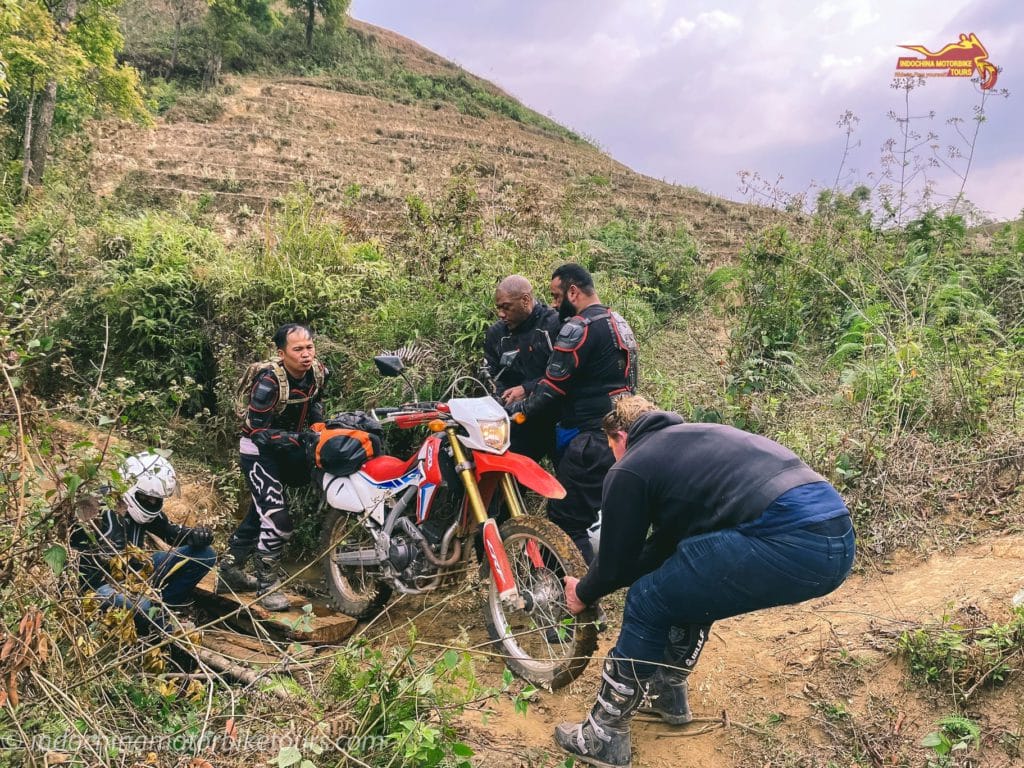
It’s important to note that in Vietnam, traffic accidents can be a complicated and time-consuming process, so it’s essential to have proper insurance coverage and follow all the necessary procedures. Additionally, it’s always best to prioritize your safety while riding and follow traffic rules to avoid accidents.




